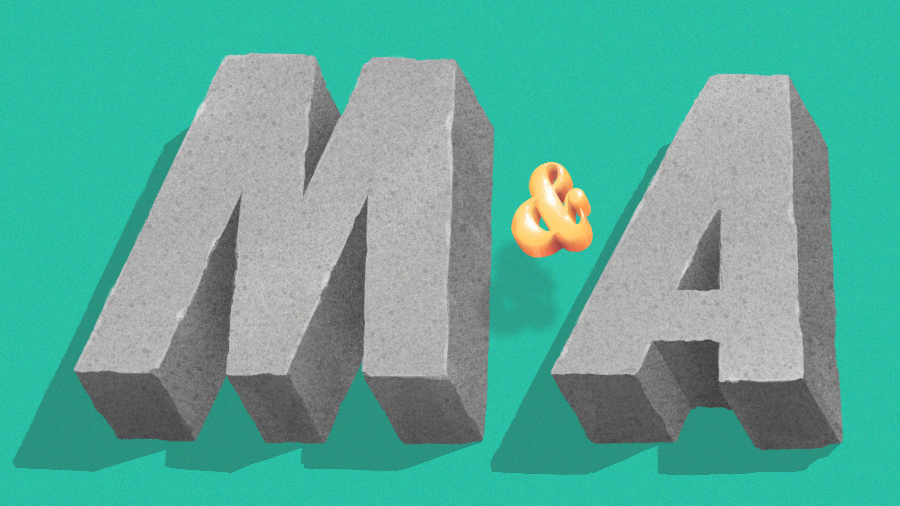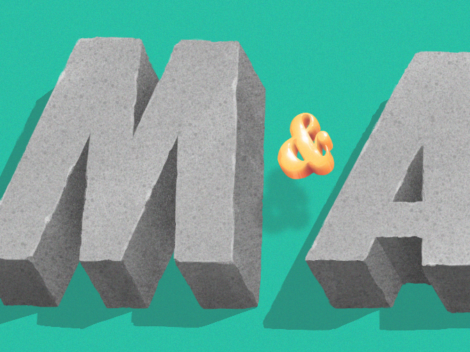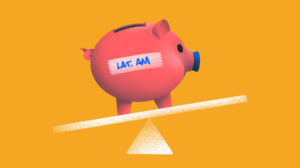Although a rumored PayPal acquisition of Pinterest isn’t happening, the potential deal indicates the fintech giant could be more heavily focused going forward on the social commerce space, which involves consumer purchases made on social media platforms.
Subscribe to the Crunchbase Daily
Social commerce is something Pinterest has been focused on since pivoting from an image search site where users go to find style, wedding and decor inspiration. PayPal, meanwhile, wants to build out its already extensive financial ecosystem.
While that deal didn’t pan out, I think there are other deals, including potential partnerships or smaller acquisitions, that could make sense for PayPal to pursue. Let’s take a look.
Why Pinterest?
If PayPal had pursued a purchase of Pinterest, it would presumably have done so to power transactions. (Shares of PayPal fell sharply after multiple media outlets reported late last month that it was pursuing Pinterest in a deal that could be valued at up to $45 billion. Shares rebounded after PayPal said it wouldn’t pursue a deal at this time.)
The Pinterest transaction likely had to do with PayPal’s desire to take control of the whole purchasing process, according to Moshe Katri, an analyst with Wedbush Securities. It would have made PayPal very active, probably “stickier” and ultimately generate more volume on the platform, which serves both consumers and merchants.
“The thought here is ultimately you should be able to connect between the 32 million merchants and over 400 million consumers in a shopping sort of function or an improved experience,” Katri said in an interview. “And a shopping function helps integrate these platforms in a network within PayPal.”
But PayPal didn’t necessarily need Pinterest to accomplish its perceived goal of being a one-stop financial product, according to Katri. The company acquired online coupon company Honey in 2019, in a purchase that helped PayPal better understand consumers’ shopping behaviors. Pinterest could have helped PayPal get deeper into that function in different shopping categories.
“It helps expand the ecosystem, if you think about it,” Katri said. “Square is also in the same category. Both companies are trying to monetize the ecosystem among consumers and merchants.”
But, even without making a multibillion-dollar purchase, PayPal could still become the transaction tool for Pinterest, according to Scott Kessler, vice president and global lead for technology, media, and telecom at Third Bridge. It could do that by partnering with Pinterest, rather than buying it.
The two companies that lead in social commerce are Facebook—er, I mean, Meta—and Pinterest, according to Kessler. Meta’s Instagram is a leader in social commerce because of its large user base and dominance among social media platforms coupled with shopping features, and Pinterest has reoriented itself to focus on commerce as well.
Potentially better (or at least cheaper) options
In my opinion, if PayPal is dead set on acquiring a social commerce company, a different option could be Poshmark.
Poshmark isn’t a major social media company like Meta or Pinterest, but it is an e-commerce company with a social aspect to it. Users can follow other sellers, and “like” and comment on items. The clothing resale marketplace’s stock is down 77 percent since it went public earlier this year, and it now has a market cap of about $1.8 billion. So, it’s significantly cheaper to buy—not that PayPal is broke: it had around $5.7 billion in cash on hand at the end of Q2 2021—and would give PayPal more ownership in the social commerce space.
Similarly, India-based Meesho could be an option. It’s similar to Poshmark in that it’s a social marketplace for buying and selling items, and it was last valued around $4.9 billion after a funding round in September, so it’s also much less expensive to buy than Pinterest. Meesho is focused on customers in India, which is a large market and would give PayPal a leg up in that country as social commerce becomes more popular there.
Partnerships may prove key
There are also plenty of companies PayPal could partner more extensively with. It could partner with Pinterest, Poshmark or really any major e-commerce site–users can already use PayPal to pay for purchases on Poshmark, while Pinterest will redirect users to a brand’s website.
In fact, Kessler argues that it makes more sense for PayPal to partner with social commerce companies.
“I’m just not sure if it makes sense to outright acquire these businesses,” he said.
Companies including Shopify have entered the world of social commerce through partnerships. TikTok and Shopify, for example, partnered earlier this year, Kessler pointed out. In that deal, TikTok added an in-app shopping feature that Shopify merchants with TikTok business accounts could use to link their online store to their TikTok account.
It would make more sense for a company like PayPal to similarly partner with social media or social commerce companies, according to Kessler.
One of PayPal’s concerns might be that social commerce is becoming a bigger opportunity and it could miss out, Kessler said. One way to make sure PayPal has a seat at the table is by buying a key player like Pinterest.
Kessler suspects there was some investor pushback when reports of the brewing PayPal-Pinterest deal emerged, similar to when investors pushed back after reports that Salesforce1was looking to buy Twitter in 2016.
There have been a lot of aggressive moves within fintech recently, and PayPal could be gearing up for a big acquisition regardless. Its most recent sizable acquisition was when it bought software platform Paidy for $2.7 billion in September.
By all accounts, M&A activity is up. Capital is cheap, valuations are up across the board–which tends to make smaller companies more open to selling–and large acquirers who want to grow may want to do that before the government starts scrutinizing deals more closely next year amid growing antitrust concerns on Capitol Hill.
“I think there are a lot of large, aggressive, well-capitalized competitors in this category and it forces them to think very aggressively and perhaps do something a little different and unexpected,” Kessler said.
Salesforce is an investor in Crunchbase. It has no say in our editorial process. For more, head here.↩

Stay up to date with recent funding rounds, acquisitions, and more with the Crunchbase Daily.








67.1K Followers